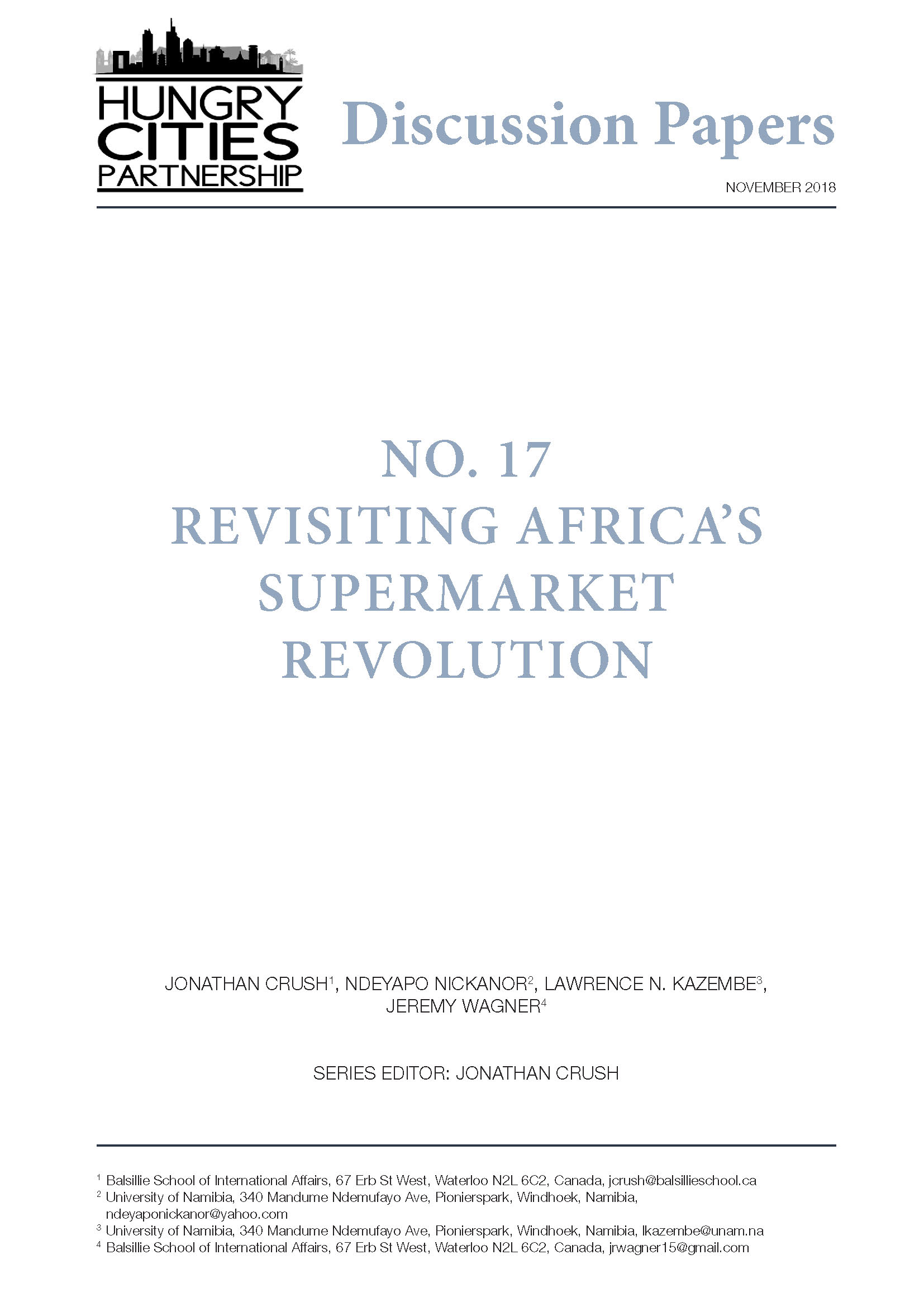Africa is urbanizing at an unprecedented rate and food systems are undergoing rapid transformation. This transformation is being driven in part by a global supermarket revolution. However, the idea of an inexorable supermarket revolution on the continent has recently been contested. This paper examines the role of supermarkets in Namibia’s capital city Windhoek to test the applicability of the model. The paper is based on (a) a review of the literature on South African supermarket expansion; (b) a survey of the food purchasing behaviour of a representative sample of 875 households in Windhoek; and (c) a comprehensive product inventory of three supermarkets in Windhoek. Since the end of apartheid, all five major South African supermarket chains have expanded their operations into other African countries, especially those most geographically proximate, such as Namibia. Windhoek is a city of 350,000 people and has over 30 supermarkets, which cluster in middle and high-income areas. However, over 90% of households, including those in low-income areas and informal settlements, patronize these supermarkets. A major reason for growing supermarket domination of the urban food system is the proximity of South Africa and the integration of Namibian supermarkets into South African supply chains. Two-thirds of products sold at supermarkets are sourced directly from South Africa. Despite the corporate power and efficiencies of South African supermarkets, at least one locally-owned chain is able to compete in this crowded marketplace.

